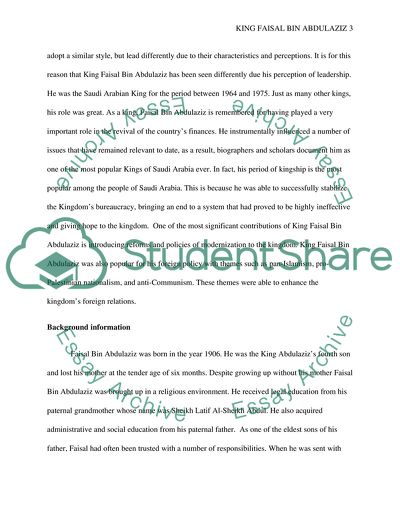Cite this document
(King Faisal Bin Abdulaziz Report Example | Topics and Well Written Essays - 3250 words, n.d.)
King Faisal Bin Abdulaziz Report Example | Topics and Well Written Essays - 3250 words. https://studentshare.org/history/1847803-king-faisal-bin-abdulaziz
King Faisal Bin Abdulaziz Report Example | Topics and Well Written Essays - 3250 words. https://studentshare.org/history/1847803-king-faisal-bin-abdulaziz
(King Faisal Bin Abdulaziz Report Example | Topics and Well Written Essays - 3250 Words)
King Faisal Bin Abdulaziz Report Example | Topics and Well Written Essays - 3250 Words. https://studentshare.org/history/1847803-king-faisal-bin-abdulaziz.
King Faisal Bin Abdulaziz Report Example | Topics and Well Written Essays - 3250 Words. https://studentshare.org/history/1847803-king-faisal-bin-abdulaziz.
“King Faisal Bin Abdulaziz Report Example | Topics and Well Written Essays - 3250 Words”. https://studentshare.org/history/1847803-king-faisal-bin-abdulaziz.


